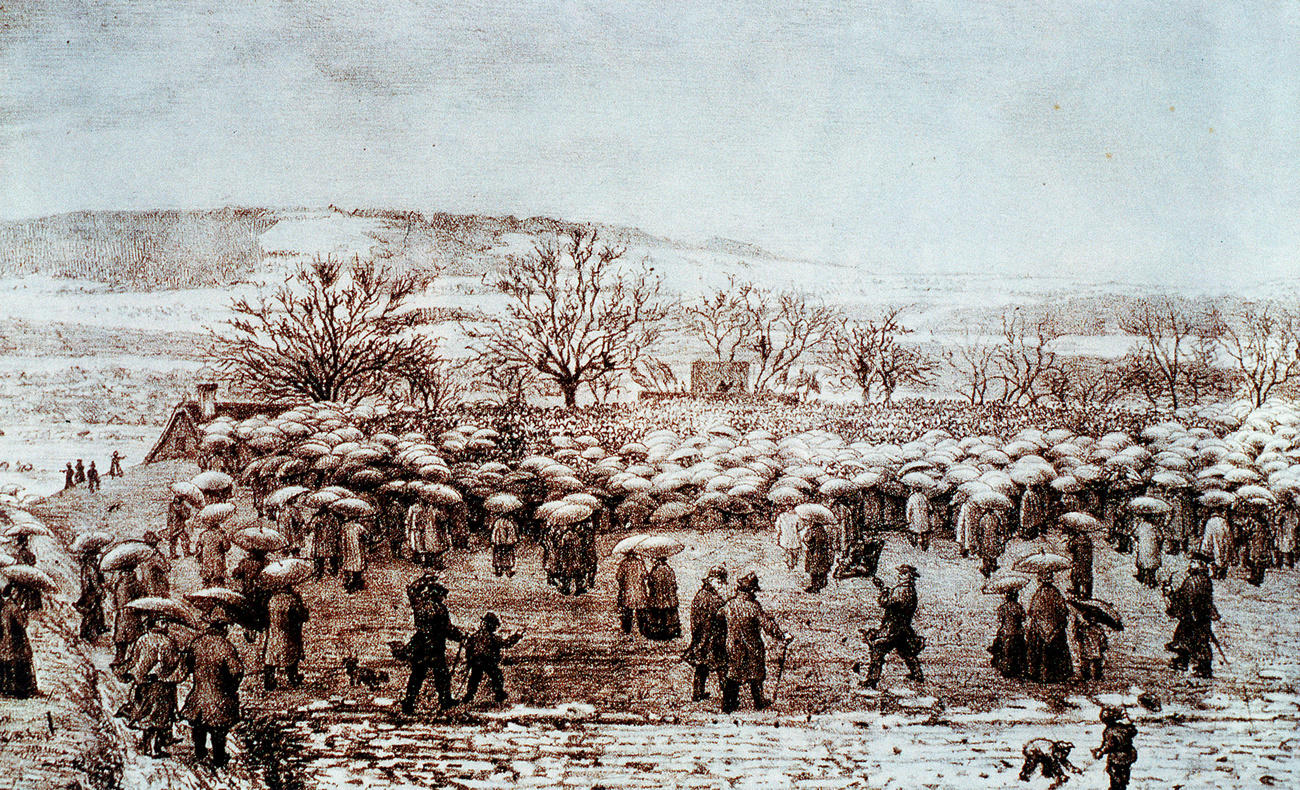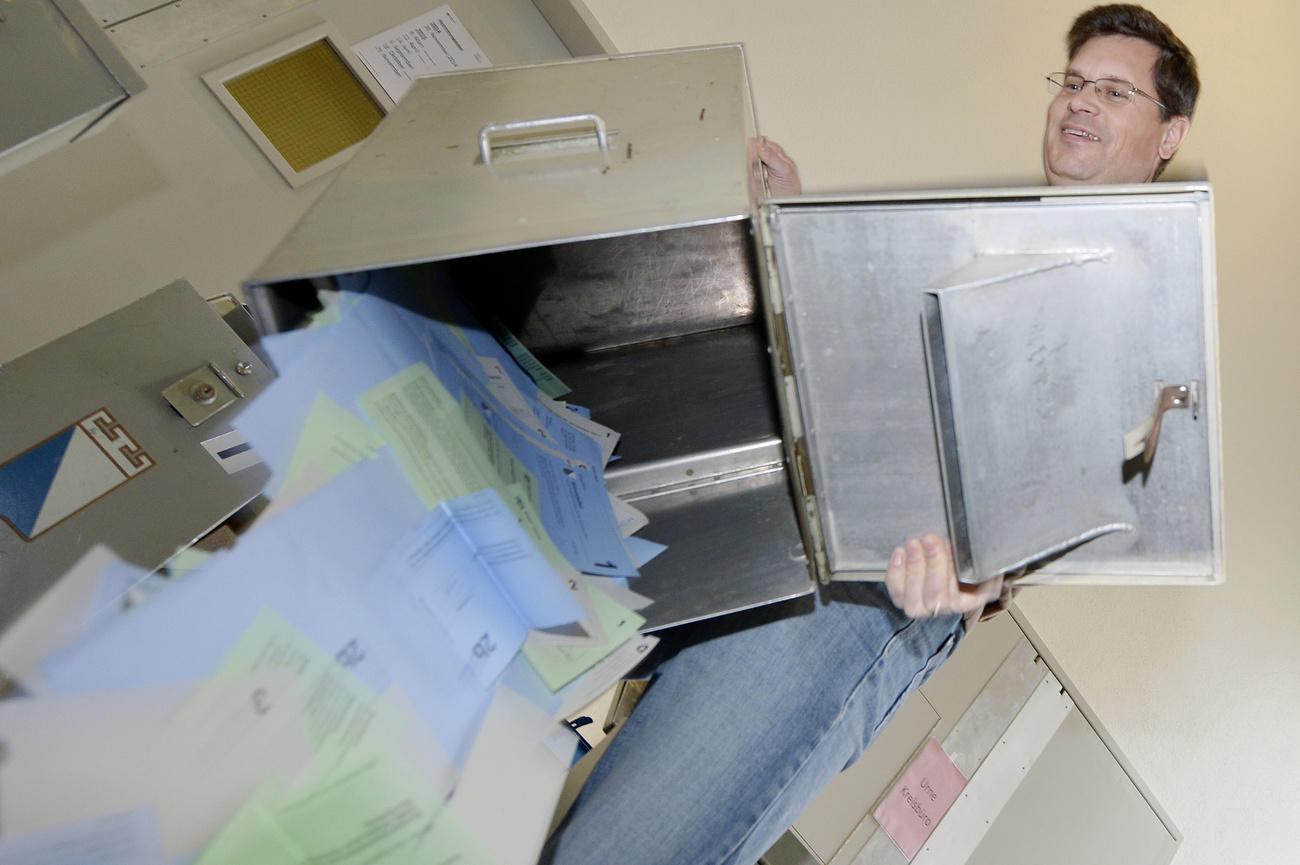The latest updates on Swiss and international democracy

The lockdown is lifting, but this hasn’t stopped protests against the government’s Covid-19 restrictions. Legitimate democratic dissenters or conspiracy theorists? Here are the latest direct democracy updates from Switzerland.
For three weekends running, protestors have taken to the streets of Bern and other Swiss cities to contest the lockdown rules and restricted rights put in place – this despite the fact that as of last Monday, shops, restaurants, and schools in the country are back open.
What do they want? For some it’s about democratic rights: the government has encroached too far on individual freedom and it’s time to fight back. Others, perhaps unfortunately for the legitimacy of the event, have more leftfield worries about vaccination and 5G.
With the protests set to continue, it’s an interesting time to ask what amounts to legitimate resistance, and what amounts to illegal disruption in a modern democracy.
- Good reasons for protest? – we speak to a Swiss neuroscientist who investigates conspiracy theories, and ask which protests are legitimate in a democracy
- Amnesty International has questioned the Swiss ban on public demonstrations
- Dissenters are not just crackpotsExternal link – the Berner Zeitung’s view (in German)

Meanwhile, with the country brought to a standstill and people getting used to Zoom and Skype etc., the issue of technology and politics – “digital democracy” – is back on the table.
Some have criticised the fact that parliament was unable to meet during the initial months of the lockdown due to social distancing rules; couldn’t they have done so online? The issue of e-collecting for signatures and e-voting have also raised their heads again.
One thing is sure: with the social distancing rules continuing to operate for the foreseeable future, and with a big vote coming up in Switzerland in September, the issue of online campaigning and tech’s influence on politics is not going away soon.
- Protesting from home? – swissinfo’s Andrea Tognina on how May 1 protests moved online this year due to coronavirus restrictions
- A new way of thinking – digital activist Daniel Graf tells us why parliament needs to be reformed to work with more new technology
- From the archives – Costa Vayenas talks about how we will all be doing politics via smartphones in the future

As we literally live through history, some journalists have been looking back to previous moments in history when epidemics have rocked Switzerland and the world.
Such disruption is always liable to bring some sort of change about, whether positive or negative; and for democracy, this is even more so the case as the crisis lays bare inequalities and problems in society that we may not have been aware of before.
What will the upshot of Covid-19 be on democracies, in Switzerland and internationally? Beyond the inevitable economic recession, are we going to see big political changes coming over the horizon? What can history teach us about this?
- Epidemic as catalyst – how a cholera outbreak in Zurich in 1867 spurred the development of direct democracy in Switzerland
- Revealed by an epidemic – how the Spanish flu hit some parts of Swiss society much harder than others in 1919
- Unequal virus – the socially less well-off are being hit harder by Covid-19; what knock-on effects will this have?

Internationally, finally, the pandemic has dramatically changed the context for participatory and direct democracy around the world this spring.
While Switzerland postponed its May 17 popular votes to a new voting day in September, more than 56 countries globally have also cancelled or postponed elections and referendums; including a vote on abortion in Gibraltar and a constitutional vote in Italy.
But participatory and direct democracy is not paused everywhere: in 23 jurisdictions signature gathering and ballot voting has been allowed to go ahead including constitutional referendums in Guinea and Benin.
- Five issues for vote in September – on September 27, Swiss citizens will decide on the purchase of new army fighter jets, paternity leave for fathers, the EU freedom of movement agreement, a new hunting act, and tax deductions for childcare
- What impact on elections and referendumsExternal link – a state-of-the art overview of all votes around the world that have been held or postponed during the pandemic
- Local leadership in times of crisis – when national politicians fail to deliver basic democratic freedoms and tools, mayors around the world step in
Is there anything else you’d like to hear about from the world of direct democracy? Anything we missed? Get in touch with our correspondents Domhnall O’Sullivan or Bruno Kaufmann

In compliance with the JTI standards
More: SWI swissinfo.ch certified by the Journalism Trust Initiative


You can find an overview of ongoing debates with our journalists here . Please join us!
If you want to start a conversation about a topic raised in this article or want to report factual errors, email us at english@swissinfo.ch.